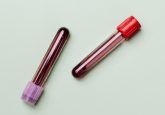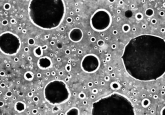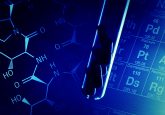Breathing a sigh of relief: new project aims to catch lung cancer early
Scientists have received funding for a project that hopes to discover the ‘biomarker signature’ of lung cancer in breath.
Researchers at the University of Huddersfield (Huddersfield) are currently working on a breathalyzer device that will be able to detect very early signs of lung cancer, which, they hope, will make developing a cure much more likely. The project has received backing from SG Court Pharmacy Group (Surrey, UK) where initial trials will be carried out. The idea behind the endeavor is that, for example, when an individual approaches their local pharmacy seeking help to quit smoking they will be invited to take the quick and simple test. Rachel Airley (University of Huddersfield, UK), who developed the breath test project, commented, “The intention is that we will catch patients before they start getting the symptoms. Once lung cancer patients start experiencing symptoms it is often very advanced and has a very low cure rate.”
Airley explained that a breath testing device called the RTube was already available, marketed as a research tool for respiratory diseases. However, this project will research the ‘biomarker signature’ of lung cancer, as detectable in the breath. “When you get certain chemicals in someone’s breath, that can be a sign that there is early malignancy,” explained Airley. “We are looking to be able to distinguish between patients with early lung cancer and patients who have maybe got bronchitis, emphysema or non-malignant smoking related disease…or who have maybe just got a cough.” Airley will research the gene biology involved and chemical analysis will be carried out by the University’s Innovative Physical Organic Solutions laboratories.
Once established, the lung cancer ‘breathalyzer’ could be adapted for other hard-to-detect cancers. Airley concluded, “We are increasingly looking at non invasive tests as an alternative to x-rays, imaging and blood tests. As detection methods get more and more sensitive we can pick up things from very easily taken bodily fluids, such as saliva or sputum, down to microscopic fragments of tissue, or even single cells.”
Source: Pharmacists receive £210k to lead research into new test device.






